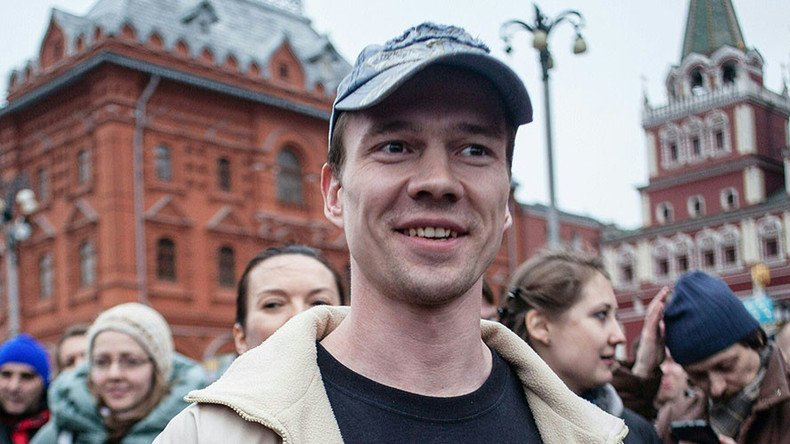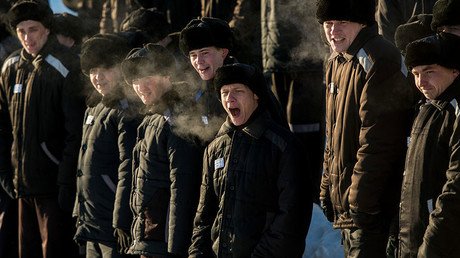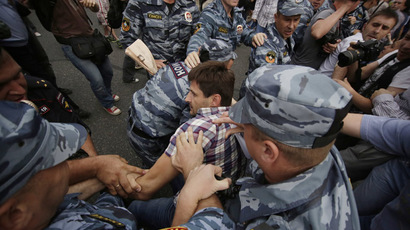‘Talented mimic’: Senior prison official rejects activist’s torture claims

An official probe has found no grounds to the claims made by a Russian opposition activist who says he has suffered beatings and threats at a penal colony, a senior prison service official has said.
Ildar Dadin is currently serving an 2.5-year sentence he received in late 2015 for repeatedly violating rules governing street rallies and activities. He alleges that he has been subjected to physical and verbal abuse by officials at the penal colony in Russia’s northern Komi Republic where he is serving his sentence.
This led to an investigation, which has now announced it found no basis to the claims.
“As a result of the check, no confirmation has been found to the allegations of illegal use of physical force against Dadin and inflicting damage to his health. All materials have been handed to investigators, we still have to wait until their decision according to protocol,” said Valery Maksimenko, the deputy head of the Federal Service for Execution of Punishment.
He noted that the same probe had not uncovered any facts of illegal use of physical force against any other inmates in the penal colony where Dadin is being kept.
Maksimenko also said he was grateful to human rights advocates and bloggers who had followed the case for their unbiased approach and interest in the truth.
“I would like to separately express my gratitude to [journalists and bloggers] Irek Murtazin and Oleg Lurie who had confirmed my position that Dadin is just a very talented mimic with exceptional artistic ability and great imagination,” he said.
The official went on to explain that Dadin’s physical condition has been checked by doctors from the Federal Service for Execution of Punishment, by specialists from a local civilian hospital, and also by Professor Vasily Generalov – one of Russia’s leading experts on epilepsy and neurology, who was recommended for the role by the Russian human rights community.
“Generalov has not found any hidden traumas that would be seen by a specialist even after some time and without external bruises and hematomas.”
In addition, Maksimenko noted to reporters that Dadin had initially agreed to a polygraph test, but retracted his consent when it actually came to the procedure, without explaining his reasons for this.
“I would like to draw your attention to the fact that the Federal Service for Execution of Punishment has never been so open for all rights activist and for society as a whole as it was in this story. The service has nothing to hide – it wants to be completely open and transparent. We have proposed this before and we are proposing it again – if there are violations and abuse in the Russian penal system, let us uncover and correct them and punish all those responsible,” he said.
Earlier this month, the Russian Justice Ministry and its Federal Service for Execution of Punishment launched an investigation into Dadin’s allegations that he was subjected to beatings and threats of rape and murder at the penal facility in northern Russia. The claims were broadly circulated on the internet and in the mass media.
The allegations were made in a letter from the activist to his wife, Anastasia Zotova, who later published it on Facebook. Dadin wrote that he was being repeatedly beaten, and was once “kicked by 12 men.” He also alleged that the wardens had him suspended by handcuffed arms and threatened to allow the other inmates to rape him, and claimed the governor of the colony told him he would be “killed and buried by the fence” if he complained.
Russian human rights officials, including ombudsman Tatyana Moskalkova and members of the Presidential Council for Human Rights, demanded that prison officials present them with all materials concerning Dadin’s case and his time in the prison colony. Moskalkova has already told reporters that the requests were fully met.
Prior to his current sentence, Dadin had civil charges brought against him for violating public order at street rallies and had been fined several times.














